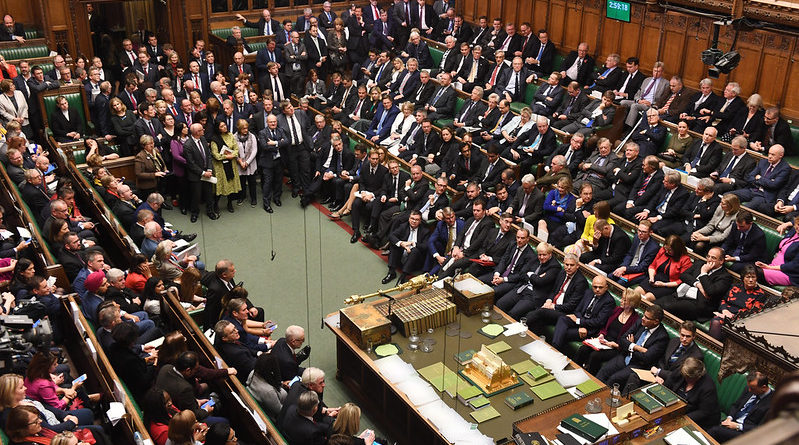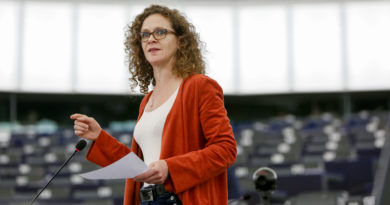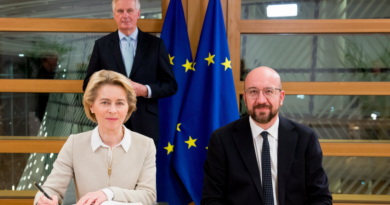UK and EU parliaments resume discussion on citizens’ rights post-Brexit
Brexit is fast approaching after the House of Commons passed with 330 to 231 votes the withdrawal agreement bill, which endorses the deal on the UK exit from the European Union and turns its terms into national law. The bill now goes to the House of Lords, which is expected to approve it despite criticisms of lack of accountability for next stages of the Brexit process.
Citizens’ rights centre-stage again
As the bill was discussed, the post-Brexit rights of EU nationals in the UK took centre-stage again. Reflecting the withdrawal agreement, the bill secures the residence status of EU citizens living in Britain prior to the end of the Brexit transition (31 December 2020).
But opposition parties highlighted flaws and proposed amendments to address them.
One of the amendments aimed at ensuring that citizens from the EU, Norway, Iceland, Liechtenstein and Switzerland who reside in the UK would have their right to permanent residence automatically recognized, instead of having to apply for it, and would be given a physical document proving their ‘settled status’.
“How many Members would be happy to rely exclusively on a piece of government digital code in an online system as the sole means of evidencing their right to live, work or study here or anywhere else?” asked Stuart McDonald of the Scottish National Party.
Another amendment sought to set in primary legislation the right of appeal against a negative decision, instead of including it only in immigration rules, and to protect rights during appeals.
Further concerns were related to the independence of the monitoring authority that has to oversee that citizens’ rights are properly protected under the agreement. Opposition parties proposed to make the Independent Chief Inspector of Borders and Immigration responsible for appointing the non-executive members of the authority, rather than giving this task to the Home Secretary. Transfers of duties or the abolition of the authority should also be decided via primary legislation, according to opposition MPs.
In December, Chief EU Brexit negotiator Michel Barnier had already voiced similar concerns in a letter to Brexit Secretary Stephen Barclay.
Among other issues, Barnier asked to rapidly address the ability of the Independent Monitoring Authority to “act rapidly and in full independence” on complaints from EU citizens and their family members. He also asked to find ways to reach vulnerable citizens and to clarify the fate of those who will not apply for the new status by the deadline of 30 June 2021.
In the discussion, MPs highlighted that few registration schemes get close to a 90% reach, and even such result would mean that hundreds of thousands of EU nationals will become illegal after the application deadline.
Additional amendments discussed in the House of Commons aimed to ensure that children entitled to British citizenship be charged an affordable fee to register as Brits and to protect the right for unaccompanied child refugees to be reunited with family members in the UK after Brexit.
Minister for Security Brandon Lewis, however, rejected all amendments arguing that a declaratory system and the provision of physical documents would undermine the government ability to “give certainty” to EU citizens.
Lewis also said amendments would prevent the government from “treating EU citizens in the same way as third country nationals when it comes to removals during an appeal process” and “would mean that people who have applications that have absolutely no chance of succeeding” could still access social security benefits.
All amendments were defeated and the bill passed in the Commons without changes.
European parliament concerns
The European Parliament, which is scheduled to approve the withdrawal agreement on January 29, is also looking at citizens’ rights and will vote a resolution on the matter on January 15, during the Strasbourg plenary session.
The EU parliament will express “grave concern at recent and conflicting announcements” by UK ministers that “have generated unhelpful uncertainty and anxiety for the citizens concerned.” The text refers to an interview with German newspaper Die Welt in which Brandon Lewis said that EU citizens who fail to meet the settled status application deadline could face deportation.
The EU parliament will also urge the UK, as well as EU 27 member states, to opt for a declaratory procedure to register citizens directly affected by Brexit.
The resolution specifically asks the European Commission to allocate “enough resources to investigate and redress any cases of non-respect of those rights” during the transition period, when the EU executive remains responsible for ensuring that free movement rights are respected.
British citizens in the EU
The European parliament is also encouraging EU countries to “pursue a consistent and generous approach” on the status of UK citizens who reside on their territory.
Looking at issues that were left out by the Brexit deal, the EU parliament will ask to guarantee “future free movement rights across the whole EU for UK citizens covered by the withdrawal agreement” and “a lifelong right for citizens covered by the withdrawal agreement to return to the UK or the EU.”
It will also call on the 27 EU member states to continue giving UK nationals the opportunity to vote in local elections, a right deriving from EU rules that will be lost after Brexit.
Free movement for UK nationals?
Regarding the future EU-UK relationship, the European parliament will express regret at the UK decision to end free movement of people with the EU and will say that any agreement should “include ambitious provisions concerning the movement of persons.” These rights, however, should be “commensurate with the degree of future cooperation in other areas.”
In a speech at the London School of Economics this week, EU Commission President Ursula von der Leyen said that after Brexit “the bonds” between the UK and the EU “will still be unbreakable.”
“We will still contribute to each other’s societies, like so many Brits have done in the EU, and as so many EU citizens do here every day in the UK,” she said. “But the truth is that our partnership cannot and will not be the same as before. And it cannot and will not be as close as before because with every choice comes a consequence” and “with every decision comes a trade-off,” she added.
Asked about giving UK nationals the option of an “associate EU citizenship,” von der Leyen said that there are “bitter truths” in Brexit and as the UK will become a third country, everything will have to be negotiated.
Claudia Delpero © all rights reserved
Photo: House of Commons, 19/10/2019 ©UK Parliament/Jessica Taylor/ Stephen Pike. Photo released under a Creative Commons 3.0 Unported (CC BY 3.0) license.





